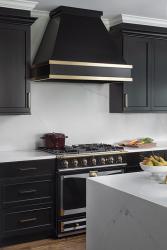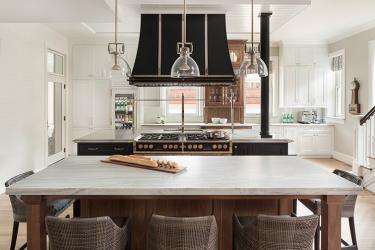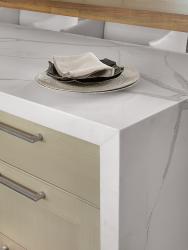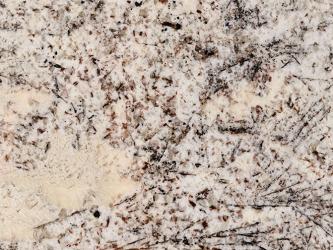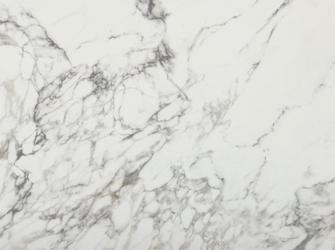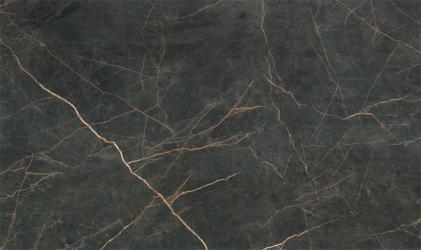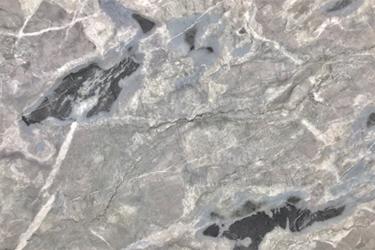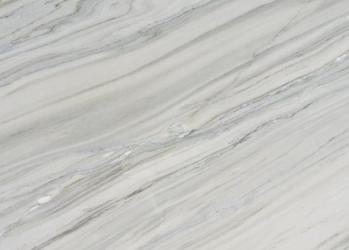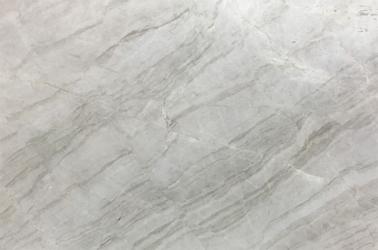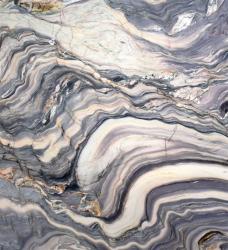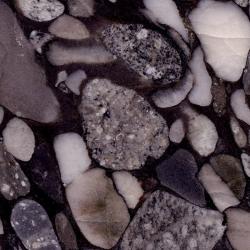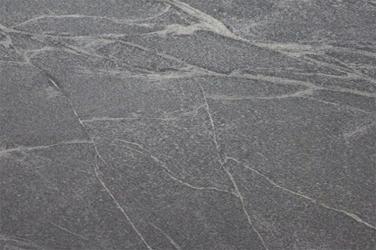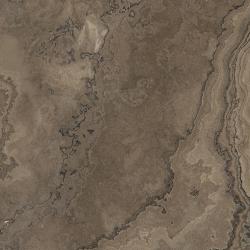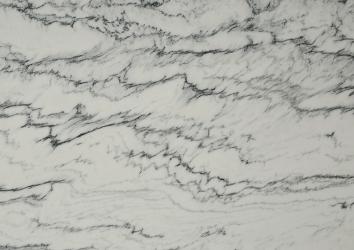Side Note: Buying Stone If you’re looking for a certain stone to purchase, there are many different companies in St. Louis that you can buy from. Natural stones come from quarries all over the world which sell to both national and international suppliers. Smaller, local companies purchase preferred types of stone from these suppliers, making it simpler for potential buyers to interact with or see the stone before purchasing them. Some places you can find your preferred stone in St. Louis are Stone Fabricators, Russo Stone & Tile, Hallmark Stone, Absolute, ASMI Surfaces, MSI Surfaces, Global Granite and Triton Stone of St. Louis.
Marble When considering a countertop material for a luxury home, there’s no doubt that marble is the first stone to come to mind for many! Known for its classic, grand aesthetic, marble is a natural stone mined from quarries and further processed to create unique slabs. For many, marble is associated with the world’s greatest sculptures.
There are several factors to consider when purchasing marble for your countertop. Marble was used by sculptors for centuries for two reasons: it's very beautiful but also softer than other stones. Marble is prone to damage, especially a process called “etching,” which is physical damage to a stone caused by coming in contact with certain substances. Marble is porous, so it can also easily stain. Before buying marble for your home, talk thoroughly with a professional on how to properly seal and maintain it.
Granite Another popular natural stone countertop choice is granite. Many gravitate toward granite for its singular look as well as how long it’s been around in the design industry. Because it is a natural stone, you’ll never get two slabs that look exactly alike, making each unique. Granite countertops are 100 percent natural, extremely durable and available in hundreds of colors covering virtually every design preference.
Granite is harder than marble, so you don’t have to worry as much about scratching or other similar damage. However, granite still must be sealed to prevent staining.
Quartzite Quartzite is also a natural stone and comes from quarries from all over the world, from Brazil to Norway to the United States, and continues to grow in popularity as a countertop material. Natural minerals give each type of quartzite a different look and color, making it easy to find a multitude of stones that will fit in with your preferred aesthetic.
Quartzite is even harder than granite, making it highly scratch resistant and impervious, preventing stains. It is also UV resistant and won’t fade in sunlight, and it's simple to clean with soap and water, not requiring any special chemicals. All that being said, quartzite’s durability makes it more difficult to quarry, resulting in higher prices.
Limestone A well-loved option for countertops, limestone can even be sourced from quarries in Missouri, making it a St. Louis favorite. Homeowners often love the uniqueness of limestone’s natural development; the stone is made over time from the shells and the fossils of aquatic life and is further shaped by the sand and living aquatic animals.
Limestone is softer than other natural stones like granite and quartzite and is more prone to scratching and staining. Therefore, limestone should be sealed before using it as a countertop to protect it from acidic substances.
Quartz Even though the name “quartz” refers to a natural mineral, engineered quartz used for countertops is a manufactured product. It’s made from quartz particles bonded together with resin, pigments and other ingredients. Manufactured quartz is made in factories in the United States, Europe and Asia, among other locations.
Because they are manufactured rather than quarried, quartz countertops have consistency in appearance. This means that the countertop you have in your home will perfectly match what you saw in the showroom. They are also highly durable (scratch and stain resistant). However, highly durable doesn’t mean indestructible! You should still use cutting boards, quickly wipe up spills and use trivets or potholders to protect your countertops from unnecessary wear and tear.
Porcelain Porcelain is a vitrified pottery material that can be opaque or somewhat translucent. Made from heating a mix of powdered stone and clay, porcelain is highly durable. Porcelain countertops have patterns printed on their surface, which creates many different options and styles. They are heat, scratch, stain and UV resistant. It’s also highly sought after for being lightweight and easier to install than other natural stones.
Because porcelain’s patterns are printed on its surface, many of the typical countertop edges aren’t advised as the color and veining doesn’t go through the stone; this means that a round, beveled or waterfall edge will show a different interior color. Mitered edges create pattern consistency and give the illusion of a thicker slab.


